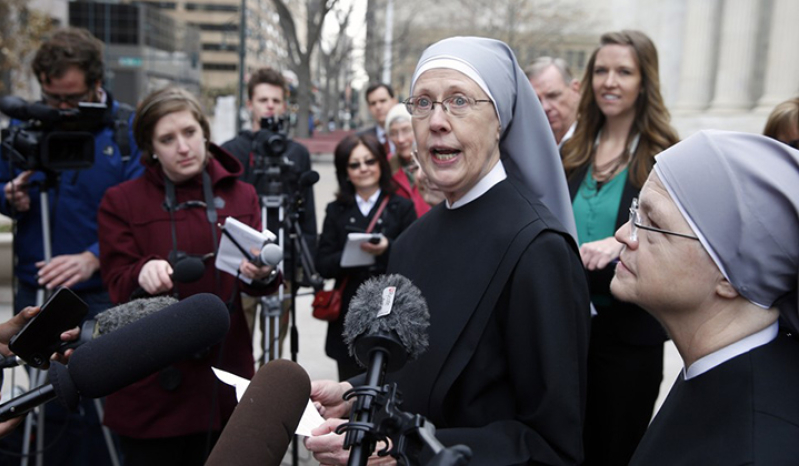
The U.S. 10th Circuit Court of Appeals issued a ruling on Tuesday that favored the Obama administration over Christian employers in regards to the system of providing contraception as part of the Obamacare law passed in 2010. The case involved a Catholic order of nuns known as the Little Sisters of the Poor.
According to Louise Radnofsky of the Wall Street Journal, religiously affiliated employers such as Christian universities and the Little Sisters of the Poor had moral objections to covering birth control. However, the 2-1 ruling from the judges concluded that the government's system "relieves them from complicity."
"Shifting responsibility to provide coverage away from the plaintiffs relieves rather than burdens their religious exercise," judges Scott Matheson and Monroe McKay wrote.
Mark Rienzi, a lawyer from the Becket Fund for Religious Liberty representing the Little Sisters of the Poor, expressed disappointment with the decision.
"It is a national embarrassment that the world's most powerful government insists that, instead of providing contraceptives through its own existing exchanges and programs, it must crush the Little Sisters' faith and force them to participate," Rienzi said.
The Wall Street Journal elaborated on the alternative arrangements the Obama administration made to employers opposed to birth control and other forms of contraception.
"Employers who have such objections must tell their insurance company or the federal government," Radnofsky wrote. "The insurance company then takes over responsibility for providing the coverage to employees who want it."
According to the Wall Street Journal, religiously oriented employers have argued that the alternative plans were inadequate because their insurance plans would still require them to provide contraception against their beliefs.
"Some plaintiffs are opposed to most forms of birth control," Radnofsky wrote. "Others object specifically to forms such as the so-called morning-after pill, which they consider tantamount to abortion."
Officials from the Becket Fund told the Wall Street Journal that the Obama administration has already won similar cases in the Third, Fifth, Seventh and D.C. circuits. The organization has contemplated appealing to the Supreme Court.
According to Laura Bassett of the Huffington Post, the 10th Circuit ruled that the accommodation carved out for such employers was "as easy as obtaining a parade permit, filing a simple tax form, or registering to vote."
"Although we recognize and respect the sincerity of plaintiffs' beliefs and arguments, we conclude the accommodation scheme relieves plaintiffs of their obligations under the mandate and does not substantially burden their religious exercise under RFRA (The Religious Freedom Restoration Act) or infringe upon their First Amendment rights," the court wrote.
Rienzi thought the government was relentlessly pursuing religious organizations like the Little Sisters of the Poor.
"Untold millions of people have managed to get contraceptives without involving nuns, and there is no reason the government cannot run its programs without hijacking the Little Sisters and their health plan," Rienzi said.






